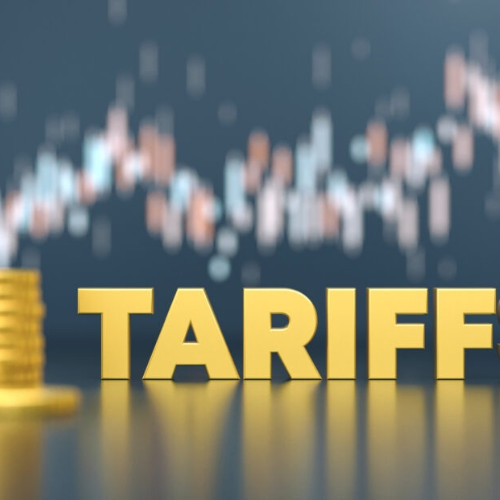In recent years, people around the world have gotten used to one thing—prices going up. From groceries and gas to gadgets and electricity, almost everything costs more now. And while inflation had started to calm down recently, that peace might be short-lived. A big reason? Tariffs.
Tariffs are extra taxes that a country places on goods coming in from other countries. The idea is to protect local businesses from cheaper foreign products. But when those tariffs are high, the cost often ends up being passed on to shoppers.
The U.S. has started raising tariffs again, especially on goods from major trading partners like China. These taxes make imported items more expensive. But experts say the real danger isn’t just the direct impact. Instead, it’s how companies might use the situation as an excuse to raise prices even more than they need to — a strategy some are calling “greedflation.”
A Perfect Cover for Higher Prices
Here’s how it works: When companies know that people expect prices to rise, they may take advantage of that. Instead of just raising prices to cover the actual cost of tariffs, they might increase them by even more, pocketing the extra profit.
Blockbuster Ban! China’s Vicious Retaliation Sends Shockwaves Through Hollywood
And because there’s already been a pattern of prices going up since the pandemic, many shoppers don’t question it anymore. They might sigh and pay the higher price, assuming it’s just the way things are now. That’s what makes the idea of inflation expectations so powerful — if enough people believe prices will rise, it gives companies a chance to raise them without much pushback.
Some experts even point out that companies may raise costs on items that aren’t directly hit by tariffs. This was seen a few years ago when washing machines were taxed. Not only did the cost of washers go up, but so did the cost of dryers — even though they weren’t taxed at all.
It’s like one company sees another raising prices and thinks, “We might as well do it too.” This kind of behavior spreads quickly and can make inflation worse, even if costs haven’t actually risen across the board.
China Faces Crushing 245% Tariffs in Trade War With the U.S.
A recent example involves a major electronics brand that raised the price of its gaming console by up to 25% in places outside the U.S. Even though those countries aren’t directly affected by U.S. tariffs, the company still made the move. Analysts believe it’s a way to prepare for more expensive supply chains and possibly to get ahead of any future tariffs.
Tariffs and Uncertain Times for Shoppers
In the U.S., inflation had dipped to around 2.4% in March, but many now worry that it could rise again — some fear it might even double. New tariffs, even if not as harsh as earlier threats, are still steep. Some products coming into the country are now taxed at an average rate of 28%, the highest level seen in more than a century.
That means everyday items like clothes, shoes, and electronics could get more expensive. A recent analysis showed that the typical U.S. household might end up paying nearly $5,000 more each year because of these added costs. That’s a big hit, especially when many families were just starting to feel like they were catching up after years of high inflation.
Tariffs Force Sony to Hike PS5 Cost by 25 Percent
What’s also troubling is the confusion. No one knows exactly what the final tariff rules will be. This makes it hard for businesses and shoppers to plan. Companies might raise prices “just in case,” adding to the uncertainty and frustration.
Some U.S. officials have warned companies not to use tariffs as a reason to unfairly raise prices. But the truth is, it’s hard to stop. When foreign goods are more expensive, local companies might see an opportunity. They can raise their own prices a little — still staying below the now-higher prices of imports — and make more money.
While companies may say they’re adjusting for the tough economy or complicated supply chains, many experts believe some are simply boosting profits while they can. And with so many price hikes already behind us, there’s worry that shoppers will just accept more to come — even if it means struggling to afford basic things.
Whether it’s groceries, gadgets, or clothing, the return of tariffs could mean the return of rising prices — and this time, it may be driven more by profit than by real costs.


